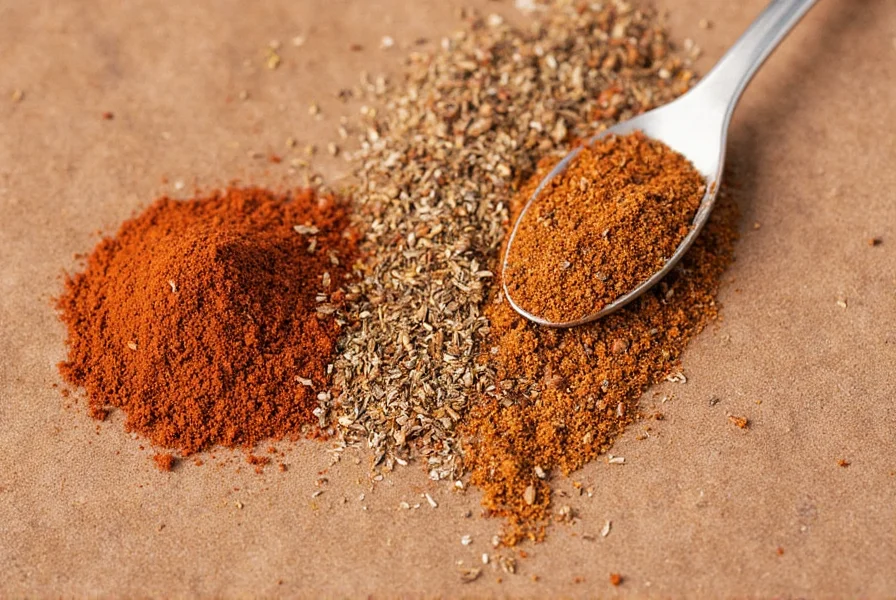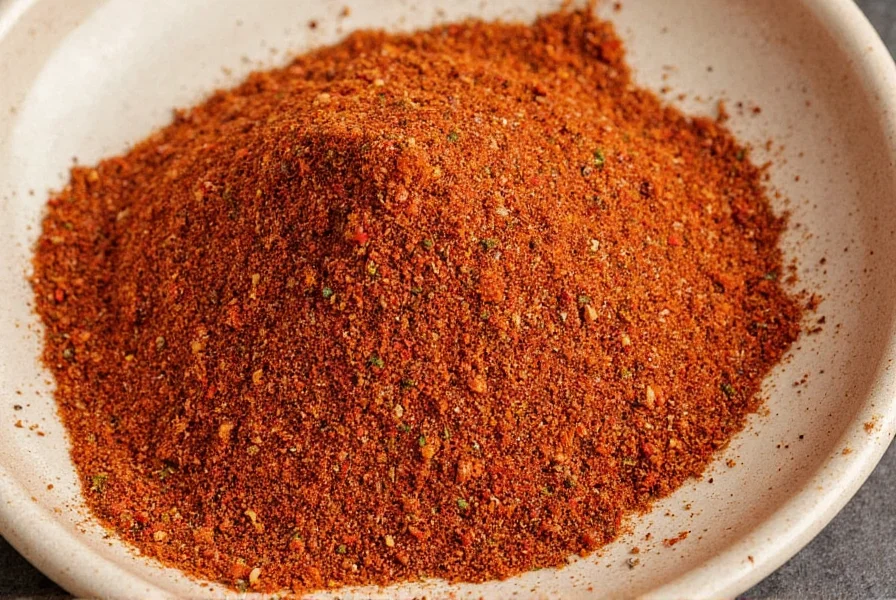Understanding what's in jerk seasoning goes beyond just a simple spice list—it's about appreciating a culinary tradition with deep cultural roots. Originating from Jamaica's Taino indigenous people and later refined by Maroon communities, jerk seasoning represents centuries of flavor evolution. The precise combination of ingredients creates a complex flavor profile that balances heat, sweetness, earthiness, and warmth.

The Essential Components of Authentic Jerk Seasoning
Allspice, known locally as pimento, serves as the foundation of traditional jerk seasoning. This single berry delivers flavors reminiscent of cinnamon, nutmeg, and cloves combined. Scotch bonnet peppers provide the characteristic fiery heat, though their quantity can be adjusted based on desired spice level. Fresh thyme contributes earthy notes, while garlic and ginger add aromatic depth and pungency.
Additional warming spices like cinnamon, nutmeg, and cloves complement the allspice, creating layered complexity. For marinades, liquid components such as soy sauce, vinegar, or lime juice help the spices penetrate the meat while adding tanginess. Some modern variations include brown sugar for caramelization or allspice berries freshly ground for maximum flavor impact.
Historical Context of Jerk Seasoning
The term "jerk" likely derives from the Spanish word "charqui," meaning dried meat, which evolved into the English "jerky." However, Jamaican jerk seasoning developed uniquely through the fusion of Taino smoking techniques and African culinary traditions. Enslaved Africans who escaped to Jamaica's mountainous regions (Maroons) perfected this preservation method using local ingredients.
Originally, jerk seasoning was used to preserve and flavor meat cooked over pimento wood in specially constructed jerk pits. The allspice berries would be thrown on the coals, infusing the meat with aromatic smoke while the spice rub protected it from spoilage. This historical context explains why allspice remains non-negotiable in authentic jerk seasoning recipes.
Detailed Ingredient Breakdown
Allspice (Pimento) - The undisputed star of jerk seasoning, allspice berries come from the Pimenta dioica tree native to Jamaica. When crushed or ground, they release complex flavors that form the backbone of the seasoning. Many Jamaican chefs insist on using freshly ground allspice berries rather than pre-ground powder for superior flavor.
Scotch Bonnet Peppers - These fiery peppers provide authentic jerk seasoning's characteristic heat. With a Scoville rating of 100,000-350,000 units, they're comparable to habaneros but with distinct tropical fruit notes. The capsaicin in these peppers helps preserve meat and carries other flavors deep into the tissue.
Thyme - Specifically Jamaican thyme (Thymus vulgaris), which has a more intense, earthy flavor than common thyme varieties. Fresh thyme leaves are preferred over dried for maximum aromatic impact in traditional preparations.
Garlic and Ginger - These aromatics provide pungency and depth. Freshly minced or grated forms work best, as they release volatile compounds that dried versions lack. Together, they create a flavor base that complements the other spices.
| Ingredient | Traditional Role | Flavor Contribution | Authenticity Level |
|---|---|---|---|
| Allspice (Pimento) | Primary flavor base | Warm, complex (cinnamon+nutmeg+cloves) | Essential |
| Scotch Bonnet Peppers | Heat source | Fiery with tropical fruit notes | Essential |
| Fresh Thyme | Herbal component | Earthy, slightly minty | Essential |
| Garlic | Aromatic base | Pungent, savory | Essential |
| Ginger | Aromatic base | Spicy, warm, slightly sweet | Essential |
| Green Onions | Flavor enhancer | Mild onion flavor, freshness | Highly Recommended |
| Cinnamon | Warming spice | Sweet, woody | Traditional |
| Nutmeg | Warming spice | Warm, nutty, slightly sweet | Traditional |
Traditional vs. Modern Variations
Authentic Jamaican jerk seasoning differs significantly from many commercial versions found in supermarkets. Traditional recipes rely on fresh ingredients and specific ratios developed over generations. Commercial blends often substitute dried herbs for fresh ones and may include additional ingredients like cumin, coriander, or even paprika to appeal to broader palates.
The distinction between jerk seasoning and jerk marinade is crucial. Jerk seasoning refers specifically to the dry spice rub, while jerk marinade incorporates liquid elements like soy sauce, vinegar, lime juice, or even rum. Many authentic Jamaican preparations use both—a dry rub followed by a wet marinade for maximum flavor penetration.
Practical Application and Usage Tips
When using jerk seasoning, remember that freshly prepared blends always outperform store-bought versions. For best results, grind allspice berries immediately before mixing your seasoning. The oil content in freshly ground spices carries flavor compounds more effectively than pre-ground versions that have lost volatile oils through oxidation.
For meats, allow at least 12 hours of marinating time—24 hours is ideal—to let the flavors fully penetrate. The acid in marinades (from citrus or vinegar) helps break down proteins, allowing deeper spice penetration. When cooking, traditional methods involve slow smoking over pimento wood, but modern grill or oven methods can still produce excellent results with proper temperature control.
Don't limit jerk seasoning to just meats—it works wonderfully with vegetables, tofu, or even as a seasoning for roasted nuts. The versatility of this traditional blend makes it valuable beyond its original culinary context while maintaining its distinctive Jamaican character.
Storage and Shelf Life Considerations
Dry jerk seasoning blends maintain their potency for about 6 months when stored in an airtight container away from light and heat. For maximum freshness, consider making smaller batches more frequently. If you include fresh ingredients like garlic or ginger in your blend, store it in the refrigerator and use within one week.
Freezing is an excellent option for preserving homemade jerk marinades. Portion them into ice cube trays, then transfer the frozen cubes to freezer bags. This method allows you to thaw only what you need while maintaining flavor integrity for up to 3 months.
Frequently Asked Questions
What's the difference between jerk seasoning and jerk marinade?
Jerk seasoning refers specifically to the dry spice rub composed of ground spices and dried herbs. Jerk marinade incorporates liquid elements like soy sauce, vinegar, citrus juice, or oil to create a wet mixture that helps the spices penetrate food more deeply. Authentic Jamaican preparation often uses both—a dry rub first, followed by a wet marinade.
Can I make jerk seasoning without Scotch bonnet peppers?
While Scotch bonnet peppers provide authentic heat and flavor, you can substitute habanero peppers which have similar heat levels and flavor profiles. For milder versions, reduce the quantity or use milder peppers like serranos, though this alters the traditional flavor balance. The distinctive tropical fruit notes of Scotch bonnets are difficult to replicate exactly with other peppers.
Why is allspice so important in jerk seasoning?
Allspice (pimento) is essential because it provides the complex flavor foundation that defines jerk seasoning. Native to Jamaica, allspice berries contain compounds that taste like a combination of cinnamon, nutmeg, and cloves. This single ingredient creates the warm, sweet, and spicy base that other components build upon. Authentic Jamaican jerk relies on freshly ground allspice berries for maximum flavor impact.
Does traditional jerk seasoning contain sugar?
Traditional Jamaican jerk seasoning does not typically include sugar in the dry rub, though some modern variations do. Sugar appears more commonly in jerk marinades to aid caramelization during cooking. Authentic jerk cooking relies on the natural sugars in ingredients like onions and the Maillard reaction from proper cooking techniques rather than added sweeteners.











 浙公网安备
33010002000092号
浙公网安备
33010002000092号 浙B2-20120091-4
浙B2-20120091-4